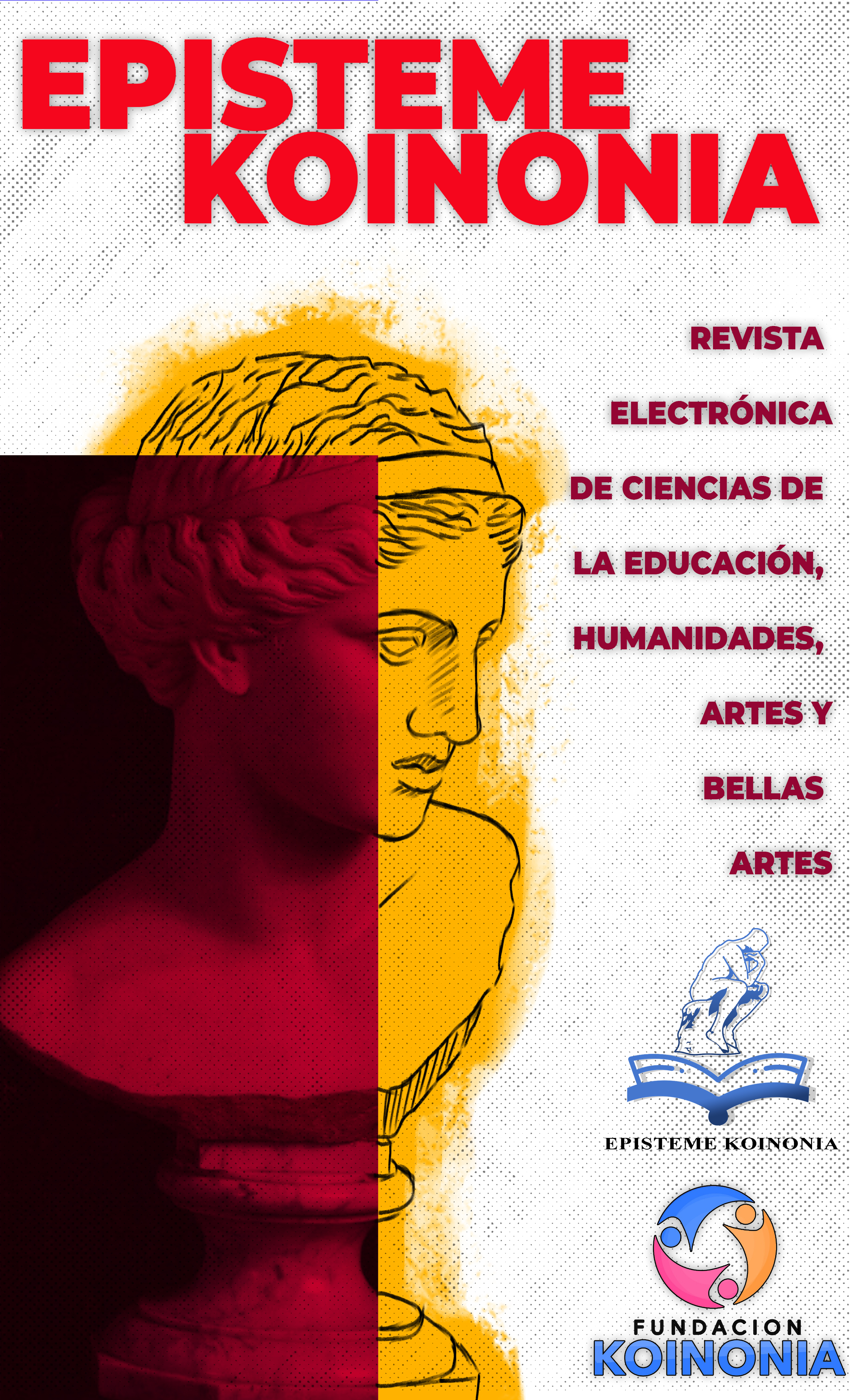School projects as a function of assertive communication in elementary school students
DOI:
https://doi.org/10.35381/e.k.v8i16.4549Keywords:
Student, school project, assertive communication, (UNESCO Thesaurus)Abstract
The objective of this article was to analyze the theoretical and methodological foundations that have supported the use of the school project to favor assertive communication in elementary school students. As a methodology, a descriptive type of documentary research was carried out, using the methods of analysis and synthesis, induction and deduction, as well as documentary review to deepen the topic and describe the contents related to the object of research. As a result, this approach made it possible to contextualize the information gathered in a reflexive manner and to analyze it from an integral perspective. Thus, a set of explanatory arguments was presented that made it possible to understand the school project as a form of educational organization for the development of assertive communication. In conclusion, the school project was established as an interactive learning space that enhanced cognitive and socioemotional skills, thus contributing to the integral development of the elementary school student.
Downloads
References
Armijos, R. (2024). Relación entre la atención y evaluación de aprendizaje en estudiantes de primaria. Revista InveCom, 4(2), 1-18. https://n9.cl/m8nzq
Belmonte, M., y Estupiñán. R. (2024). Autopercepción sobre la comunicación asertiva en estudiantes con discapacidad intelectual. Revista Andina de Educación, 7(2), 1-8. https://n9.cl/1v4eo7
Cañas, D., y Hernández, J. (2019). Comunicación asertiva en profesores: diagnóstico y propuesta educativa. Praxis & Saber, 10(24), 143-165. https://n9.cl/tjjc8
Claros, A., Melgar, A., y Mosquera, Z. (2023). Habilidades sociales y el trabajo en equipo en estudiantes del nivel secundaria. Horizontes Revista de Investigación en Ciencias de la Educación, 7(29), 1490-1501. https://n9.cl/0llxm
Clavijo, F., y Bustamante, U. (2019). Comunicación asertiva y productiva: Casos de estudio en Manizales. NOVUM, revista de Ciencias Sociales Apliacadas, 1(9), 2019, 261-285. https://n9.cl/bohbp
Fernández, A., Gómez, B., Binjaku, K., & Meçe, E. (2023). Digital transformation initiatives in higher education institutions: A multivocal literature review. Education and information technologies, 28(10), 12351-12382. https://n9.cl/cjky1
Hossein, H., Trujillo, J., Gómez, M., Hossein, H., y Campos, A. (2021). Analysis of the use and integration of the flipped learning model, project-based learning, and gamification methodologies by secondary school mathematics teachers. Sustainability, 13(5), 2606, 1-18. https://n9.cl/djpbz
Hutchings, K., y Standley, M. (2000). Global Project-Based Learning with Technology. Visions Technology.
Isea, J., Álvarez, G., Molina, T., y Romero, A. (2025). Estrategias para el desarrollo de competencias en Educación Superior. Revista Conrado, 21(103), e4345. https://n9.cl/zjikp
Jumbo, J. (2024). Inclusión y el mejoramiento del espacio educativo en el aula. Episteme Koinonía. Revista Electrónica de Ciencias de la Educación, Humanidades, Artes y Bellas Artes, 7(13), 52-69. https://n9.cl/7y6tj
Keates, C. (2022). Students experience of the challenges of using assertive communication. British Journal of Nursing, 31(15), 790-798. https://n9.cl/aggvl
López, J., y Palacios, F. (2024). Effects of a project-based learning methodology on environmental awareness of secondary school students. International Journal of Instruction, 17(1), 1-22. https://n9.cl/gctm0
Martinez, C. (2022). Developing 21st century teaching skills: A case study of teaching and learning through project-based curriculum. Cogent Education, 9(1), 2024936, 1-16. https://n9.cl/vz6xo
McLure, F., Tang, K., & Williams, P. (2022). What do integrated STEM projects look like in middle school and high school classrooms? A systematic literature review of empirical studies of iSTEM projects. International Journal of STEM Education, 9(1), 1-15. https://n9.cl/dj3udi
Ministerio de Educación del Ecuador. (2017). Proyectos Escolares. Instructivo [Archivo PDF]. https://n9.cl/y0emx
Monar, C., y Caballero, E. (2023). La gestión universitaria: un estudio de partida de la comunicación asertiva en el estudiante como pauta pedagógica. Luz, 22(2), 140-152. https://n9.cl/kyq52
Quiñonez, J., y Moyano, G. (2019). La asertividad como estilo de comunicación en la formación del sujeto educador. Revista Scientific, 4(Ed. Esp.), 68-83. https://n9.cl/n2ss2
Rodríguez, D., Terrones, M., y Duran, K. (2023). Aprendizaje Basado en Proyectos para mejorar las competencias comunicativas. Revista Arbitrada Interdisciplinaria Koinonía, 8(Supl. 2), 194-211. https://n9.cl/mff73
Tantalean, L., y Callohuanca, J. (2022). Eficacia de un programa de comunicación asertiva en agentes de seguridad municipal en Lima - Perú. COMUNI@CCION: Revista de Investigación en Comunicación y Desarrollo, 13(4), 282-290. https://n9.cl/rzwv7
Published
How to Cite
Issue
Section
License
Copyright (c) 2025 Lorena Maricruz Cano-Almeida

This work is licensed under a Creative Commons Attribution-NonCommercial-ShareAlike 4.0 International License.
CC BY-NC-SA : Esta licencia permite a los reutilizadores distribuir, remezclar, adaptar y construir sobre el material en cualquier medio o formato solo con fines no comerciales, y solo siempre y cuando se dé la atribución al creador. Si remezcla, adapta o construye sobre el material, debe licenciar el material modificado bajo términos idénticos.
OAI-PMH URL: https://fundacionkoinonia.com.ve/ojs/index.php/epistemekoinonia/oai







